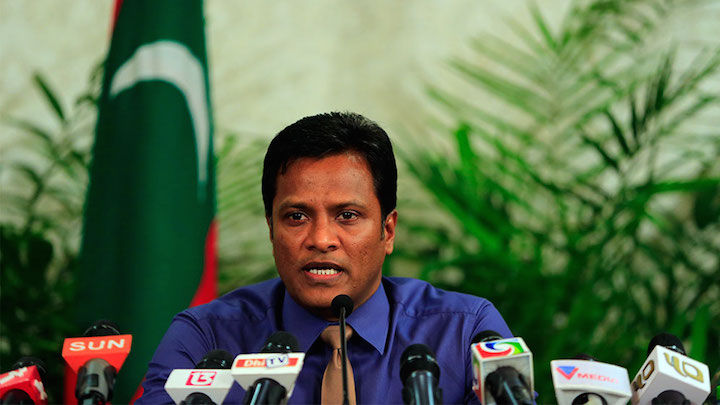Umar Naseer accused of corruption over Independence 50 celebrations
Shortly after investigators from the anti-graft watchdog went into the home ministry Sunday morning, Home Minister Azleen Ahmed called an impromptu press conference and alleged that his predecessor had awarded contracts in violation of public finance rules.

20 Mar 2017, 09:00
Umar Naseer, former home minister and presidential hopeful, has been accused of abuse of authority in awarding contracts for activities held in July 2015 to celebrate 50 years of independence.
Shortly after investigators from the anti-graft watchdog went into the home ministry Sunday morning, Home Minister Azleen Ahmed called an impromptu press conference and alleged that his predecessor had awarded contracts in violation of public finance rules.
“We have noticed that work was contracted out without asking for quotations or any prior agreement. We also have information that the responsible person at the procurement department was bypassed and the minister himself awarded contracts to people he wanted,” he said.
Naseer promptly denied the allegations, insisting that all contracts were signed with the finance minister’s written approval.
Become a member
Get full access to our archive and personalise your experience.
Already a member?
Discussion
No comments yet. Be the first to share your thoughts!
No comments yet. Be the first to join the conversation!
Join the Conversation
Sign in to share your thoughts under an alias and take part in the discussion. Independent journalism thrives on open, respectful debate — your voice matters.




